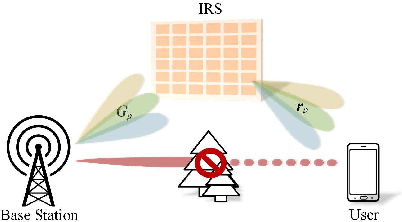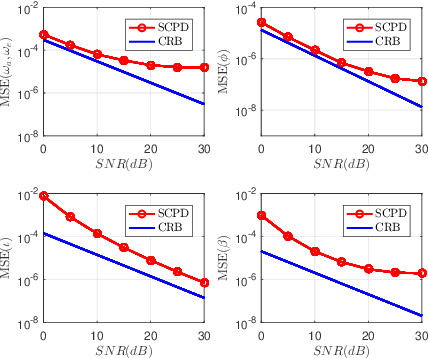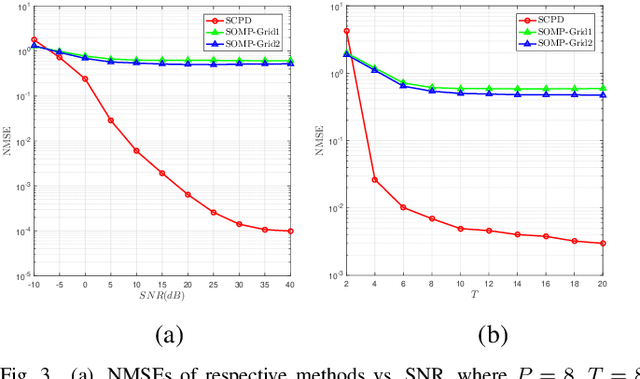Compressed Channel Estimation for IRS-Assisted Millimeter Wave OFDM Systems: A Low-Rank Tensor Decomposition-Based Approach
Paper and Code
Mar 30, 2022


We consider the problem of downlink channel estimation for intelligent reflecting surface (IRS)-assisted millimeter Wave (mmWave) orthogonal frequency division multiplexing (OFDM) systems. By exploring the inherent sparse scattering characteristics of mmWave channels, we show that the received signals can be expressed as a low-rank third-order tensor that admits a tensor rank decomposition, also known as canonical polyadic decomposition (CPD). A structured CPD-based method is then developed to estimate the channel parameters. Our analysis reveals that the training overhead required by our proposed method is as low as O(U^2), where U denotes the sparsity of the cascade channel. Simulation results are provided to illustrate the efficiency of the proposed method.
 Add to Chrome
Add to Chrome Add to Firefox
Add to Firefox Add to Edge
Add to Edge